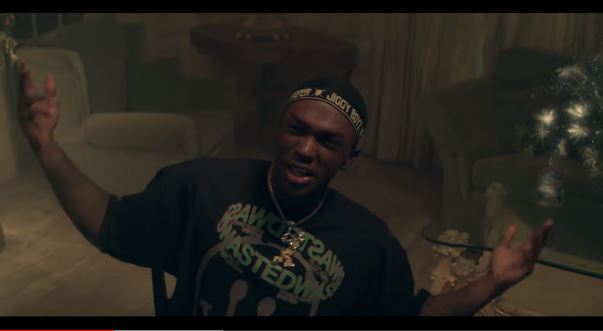


The Shuffle: Kelly Handsome’s “Maga Don Pay” & the celebration of cybercrime in music
How the song glamourises our country's relationship with cyber crime



How the song glamourises our country's relationship with cyber crime
The year is 2008 and Obama is on the brink of becoming America’s first black president. The super eagles have emerged silver medalists at the Beijing Olympics, Yar’Adua is a year into his tenure as president, we are very optimistic about the year 2020 and with just over a 100 million users, Facebook is the most exciting thing on the internet. Into this tranquil reality, Kelly Handsome’s breakout song, “Maga Don Pay” arrives to the delight of pre-pubescent music lovers and scammers alike.
We were all sold on the lavish lifestyle the song celebrates. In fact, one of my most endearing memories of that year is a classmate getting the whole class in trouble after yelling “Maga don pay” in the middle of a Computer lesson and everyone chorused “shout hallelujah!”, in solidarity and in tribute of our new favourite artist.
Lots of people use music to escape their reality, so it’s no surprise that the quick-money narrative of “Maga Don Pay” and the lavish visual imagery of the music video translated to a message of hope for Nigeria’s impoverished communities. The contextual undertone of the scam-encouraging lyrics may be negative, yet we couldn’t help but envision ourselves having so much money that the problem was how to spend it whenever we listened to the song. It provided a temporary escape for listeners but unfortunately also encouraged the celebration of criminals who are defrauding people to make a quick buck.
It’s upon this foundation, that we have come to celebrate internet-fraudsters like Hushpuppi who flaunt their wealth on Instagram with everything we hear rappers bragging about, from diamond-plated rollies to Rolls Royce Wraiths. Operating under the guise of being a successful businessman, we all thought it and whispered, but no one could actually confirm that he got his wealth through illegal means until recently. Last week, a viral video confirmed that he was arrested by Dubai authorities who paraded him with a viral video showing the extent of his crimes and wealth; he and his gang were responsible for scamming nearly 2 million victims of over $400 million.
Where in the streets, we hear about young boys being indoctrinated to gangs to become drug mules and runners, in these parts, it’s to commit fraud and ‘sase’. Nigeria‘s already unpleasant reputation as a society where fraudsters strive has managed to get just got even worse somehow. Efforts like London-based group, JJC and the 419 Squad’s attempt to re-purpose the term “419” into something positive hasn’t really had any effect on the narrative. Back in 2017, Falz also tried to raise awareness about the negative impact of these songs celebrating the yahoo–yahoo fraud lifestyle, yet songs like “Able God” where Chinko Ekun, Lil Kesh & Zlatan beg for no more insufficient funds, or Naira Marley’s “Japa” have kept the culture thriving.
Though “Maga Don Pay” came a year after OluMaintain already set the pace of glamorising internet fraud money on “Yahooze”, Kelly Handsome’s boldface embrace of the template was what established the enduring quality of the trope. He wasn’t phased by the backlash OluMaintain faced for “Yahooze” and while the former Maintain band member refused to admit his own fraud-celebrating intentions, Kelly Handsome doubled-down on it with lyrics thanking God for the success of his fraud operation, featuring white women (regular victims of fraud in real life) in the video and naming his label Creamynal Records (suggesting that he’s laundering fraud money through the music).
Kelly Handsome eventually went on to deny that there was any criminal intent behind this song, saying “It was the celebration of the favour of God on man”. He even went as far as recording a gospel version titled “Jesus Don Win” which is not to be confused with “Maga No Need Pay”, a gospel song by Bank W, Bez, Cobhams, M.I, Omawumi, Rooftop MCs and Wordsmith. That’s just how big the song was when it was released in 2008.
Songs promoting cybercrime have a way of dominating popular zeitgeist in Nigeria and some even say that the reason for this is because internet fraudsters launder their money by funding artists’ careers. The arrest of Nigeria’s biggest cybercrime celebrity, Hushpuppi has highlighted the fundamental flaw in glamorising the criminal lifestyle; he sets a bad example for impressionable youths who he may be enticed by the flashy cars and jewellery but wouldn’t want to be in locked up and facing jail time like he is now.
Stream “Maga Don Pay” below.
[mc4wp_form id=”26074″]
You are meeting Debola at a strange time in his life. He wandered into a dream and lost his way back. Tweet at him @debola_abimbolu




